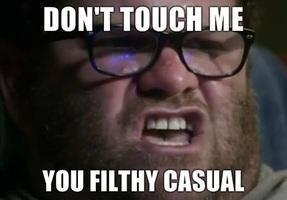Act 3
scene 1
- polonuis knows hamlet has crafty madness
- doesn't sense that hamlet is genuine
- by looking like we are doing the right thing polonuis and Claudius figured it out and know that people will look good at them
- Claudius feels guilty
- Ophelia rosencrantz guildenstern (on Claudius sides) set up to spy on hamlet
- hamlet doesn't trust Ophelia. Mom issues affect Ophelia and how he sees her
- easier to be seduced by beauty than honesty
- doesn't love Ophelia anymore
- take out anger on Ophelia and beats everyone up and says everyone is actin like a fool
- women corrupt men
- madness: insanity, and also being angry
- Claudius and polonuis spied on hamlet and have idea that hamlet isn't insane and knows that there is something else so Claudius wants to remove the threat to stay safe
- polonuis has big ego and proposes that Gertrude talk to hamlet and try to get something out if him and polonuis will listen but if he is mad then send him off but if not then keep him
Scene 2
- hamlet director
- act natural but act genuine
- hamlet knows what he wants which shows that he is not crazy but clever
- Shakespeare comments on play within play(post modernism)
- first time we are seeing hamlet giving thanks to horatio and their friendship. Horatio doesn't have ulterior motive
- tells of how strong horatio is. Something hamlet believes himself not to be
- hamlet acts crazy to the guests to encourage his madness
- hart is making puns and is "merry" and says another dig to the queen about her short grieving
- the play suggests that Gertrude had the affair after the kings death and this give a little class to queen?
- the play has moral of how we make promises to ourselves that we can never carry out. We should embrace failure as part of life because when we change so does the world. Once we see that we can't carry through with the promise we should forgive ourselves. This is the opposite of what hamlet thinks and how he thinks himself a coward for not following through with his fathers avengance
- "the lady protests too much me thinks"
- the king calls off the play when the poison is poured down the kings ear and hamlet is successful in his plan
- rose and guil try to get hamlet to confess his guilt but hamlet doesn't cave and gloats and is happy for what he has done
- hamlet gets angry and shows guild and rose that he knows they are not on his side and are just using him
- hamlet blames others for his actions as the fool because the pity him
- hamlet wants to kill mother now
Scene 3
- "I like him not"
- wants hamlet to go to england because dangerous
- king needs to keep country safe and encourage respect which hamlet was giving none of
- polonuis still adamant about hamlet being crazy from rejected love and wants to see him punished by queen why?
- kings soliloquy is just as powerful as hamlets. Shows that he is rattled by the play( the murder of gonzago) and he knows hamlet knows of what he has done but no one else does. He feels exposed and knows god knows his secret and won't let him into heaven. To be forgiven for his sins he must repent them but he can't because he is still living in the glory of them( crown, queen, ambition). Asks for angels help and die everything to be well.
- hamlet had chance to kill king but wouldn't be effective because king was praying and would go to heaven
- kings attempt at praying failed so if hamlet had actually killed the king revenge would have been successful but hamlets saved his enemy due to his own thinking and caution.
Scene 4
- polonuis tells the queen to chew hamlet out and queen does so but acknowledges Claudius and hamlets father and that enrages hamlet. The queen gets up to leave but hamlet scares her and she thinks he is going to murder her but polonuis yells help and hamlet says rat and kills polonuis in the heart. Last words " o. I am slain." Why those many?
- I think hamlet thinks e killed the king. "Nay I know not of, is it the king?"
- hamlet accuses queen of vein apart of king hamlet murder. Don't know if she knew beforehand or not
- hamlet is just ripping mother apart with words and shows her comparison if noble king hamlet and limp king Claudius
- ghost shows up and hart is interrupted and shows that he is more involved in unloading on mother than avenging his father
- ghost tells hamlet to comfort his Mother and hamlet does so by describing himself to her. She thinks he is mad because she can't see the ghost and hamlets hairs are standing up
- hamlets losing sense of reality and duty from emotion
- hamlet asks mother to not sleep with Claudius at night to keep her virtue. Maybe he knows he is going to kill Claudius in bed and doesn't want to hurt mom?
- hamlet knows he will be punished for killing polonuis
- hamlet wants his mother to say goodnight and she replies "what shall I do?"
- hamlet wants her mother to keep his secret and threatens her?(ape comparison)
- queen promises not to tell and never says goodnight
- hamlet carries polonuis body out and makes puns to him














